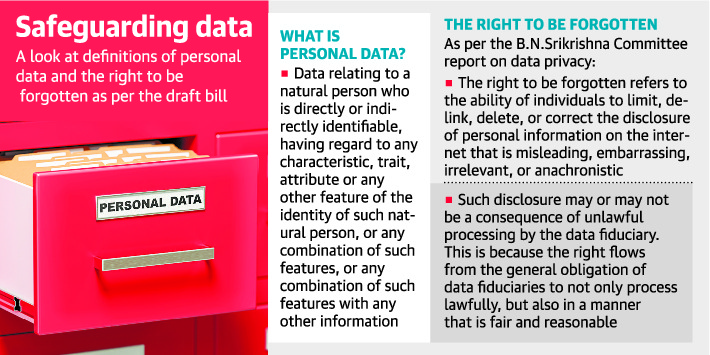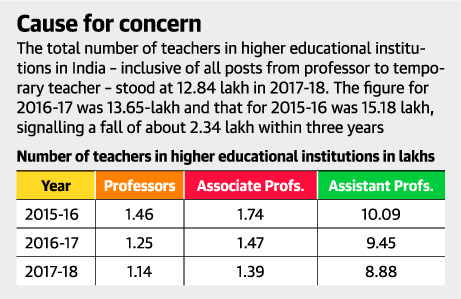IASbaba's Daily Current Affairs Analysis
IASbaba’s Daily Current Affairs (Prelims + Mains
Focus)- 28th July 2018
Archives
(PRELIMS+MAINS FOCUS)
Justice B.N. Srikrishna committee on Data Protection
Part of: GS Prelims and Mains III – Security issue; Cyber Security
In news:
- Justice B.N. Srikrishna-headed expert panel on data protection
- Srikrishna panel submitted a draft personal data protection Bill, 2018
- It recommended that critical personal data of Indian citizens be processed in centres located within the country.
- Government should notify categories of personal data that will be considered critical.
- The draft bill also provides for penalties for the data processor as well as compensation to the data principal to be imposed for violations of the data protection law.

Pic: https://d39gegkjaqduz9.cloudfront.net/TH/2018/07/28/DEL/Delhi/TH/5_01/f6b31db9_2277907_101_mr.jpg
Handle children’s data with care
- Justice Srikrishna committee on data privacy has made specific mention of the need for separate and more stringent norms for protecting the data of children
- It recommended that companies be barred from certain types of data processing such as behavioural monitoring, tracking, targeted advertising and any other type of processing which is not in the best interest of the child.
AISHE – All India Survey on Higher Education report 2017-18
Part of: GS Prelims and Mains II – Social and Welfare issue
Highlights of AISHE report:
- The total number of teachers in higher educational institutions in India has come down by about 2.34-lakh in the last three years.
- Widespread concern over the continuing vacancies in universities
- The reason could be that professors who are retiring are not being replaced, and fresh vacancies at all levels are not being filled up.
- Critics argue that – 2017-18 figure may have gone down because only teachers who provided their Aadhar numbers were been shown as teachers from this year onward.

Pic: https://d39gegkjaqduz9.cloudfront.net/TH/2018/07/28/DEL/Delhi/TH/5_05/89db20a5_2277921_101_mr.jpg
Flash Flood Guidance System
Part of: GS Mains III – Disaster management ; India and the world
In news:
- India has been designated as a nodal centre for preparing flash-flood forecasts by the World Meteorological Organization (WMO).
- That means India will have to develop a customised model that can issue advance warning of floods in Asian nations such as Vietnam, Sri Lanka, Myanmar and Thailand.
Do you know?
- Pakistan has refused to participate in the scheme.
- India currently has a warning system for tsunamis that also doubles up a warning system for several Asian countries.
- The Central Water Commission, which monitors India’s dams, warns of rising water levels in the reservoirs, which are usually taken to be signs of imminent floods.
(MAINS FOCUS)
NATIONAL
TOPIC:
General Studies 3:
- Issues related to direct and indirect farm subsidies and minimum support prices
- Inclusive growth and issues arising from it.
General Studies 2:
- Government policies and interventions for development in various sectors and issues arising out of their design and implementation.
Zero Budget Natural Farming: Reducing cost of crop production
In news:
NITI Aayog has advised States to adopt zero-budget natural farming under two existing schemes: the Paramparagat Krishi Yojana and the Rashtriya Krishi Vikas Yojana.
It has recently sought for State governments’ support in reducing cost of crop production.
About ‘zero budget natural farming’ (ZBNF):
Pioneered by Subhash Palekar, an innovative farmer from Maharashtra.
- The technique replaces fertilisers and pesticides with concoctions of cow dung, cow urine, jaggery and pulse flour, and ensure perfect soil conditions for plant growth.
- It does so by keeping the top soil covered with crop residues to increase water retention, coating of seeds with cow dung and urine, concoction made of dung, urine, jaggery and pulse flour to multiply soil microbes, concoction to protect plants from pests etc.
Case study:
- The technique has been tested across Andhra Pradesh where over 163,000 farmers on some 150,000 acres of farmlands spread across six agro-climatic zones have successfully demonstrated that farming without chemicals is a profitable possibility.
- The zero-budget technique has resulted in an increase in the yields of crops like cotton by 11 per cent, paddy by 12 per cent, groundnut 23 per cent, and chilli 34 per cent at less than half the cost of cultivation.
ZBNF has been in vogue on a small scale across several farms in the country for over a decade now, but the AP Government gave it the desired fillip.
Way ahead:
- Policy and political traction will be needed to pull farmers out from the corporate-sponsored state-subsidised chemical abyss.
- While the core objective of scaling up investments in ZBNF is timely, the critical question regarding bringing natural farming on top of agriculture research and extension agenda remains.
- By diverting existing subsidies away from chemical fertilisers and other inputs to strengthen the existing Krishi Vigyan Kendra network, NITI Aayog can garner the desired institutional support for widespread dissemination of ZBNF.
Challenge:
The most challenging task for NITI Aayog would be to neutralize the political-economy of green revolution (fertiliser, pesticide and seed industry) in favor of an evergreen revolution. For the over 60 per cent of the country’s population engaged in agriculture, this is a challenge worth taking.
Conclusion:
NITI Aayog has taken a pragmatic view on reducing the cost of production instead. In the context of the government’s commitment to double farmers’ income by 2022, reducing cost of production through ‘zero budget natural farming’ (ZBNF) stands to enhance the profit margins for farmers.
Connecting the dots:
- In the context of the government’s commitment to double farmers’ income by 2022, the recent proposal for reducing cost of production through ‘zero budget natural farming’ (ZBNF), stands to enhance the profit margins for farmers.
(TEST YOUR KNOWLEDGE)
Model questions: (You can now post your answers in comment section)
Q.1) The government-appointed committee released a white paper as part of its work to prepare a data protection framework. The committee is headed by
- BN Srikrishna
- Ratan Watal
- Rajiv Kumar
- Arvind Panagariya
Q.2) Which of the following are the potential impacts of climate change on water situation in India?
- Increased summer flows in river streams.
- Frequent changes in river courses.
- Changes in rainfall pattern.
Select the correct answer using code below
- 1 and 2
- 1 and 3
- 2 and 3
- 1,2 and 3
Q.3) Consider the following statements with reference to World Meteorological Organization (WMO)
- It is a specialized agency of the United Nations.
- It has established a Global Atmosphere Watch (GAW) system to monitor trends in Earth’s Atmosphere.
Which of the statements given above is/are correct?
- Only 1
- Only 2
- Both 1 and 2
- Neither 1 nor 2
Q.4) Which one among the below given bodies is not a statutory body?
- National Commission for SCs/STs
- National Commission for Women
- National Commission for Protection of Child Rights
- National Commission for Backward Classes
MUST READ
State and Capital
From the margins
But the winner is Mumbai
Fluid faith, medieval time
Fixing food markets
Can data supersede judgement?














